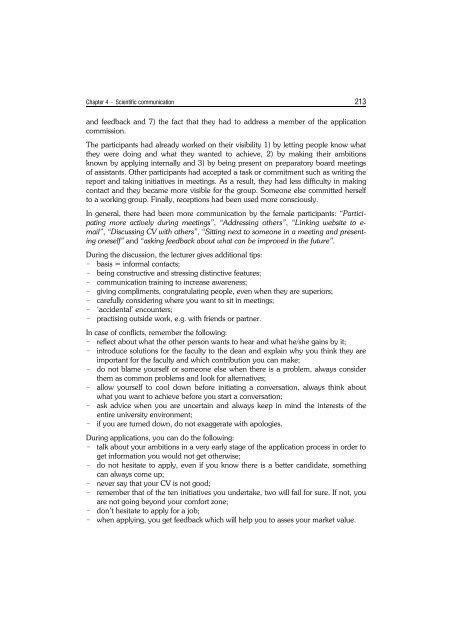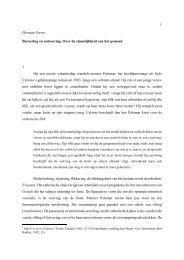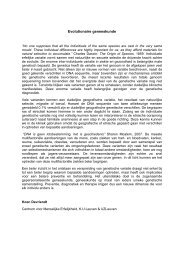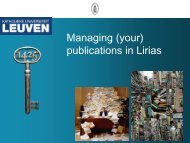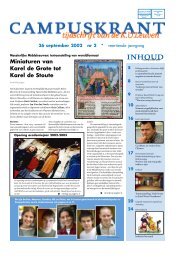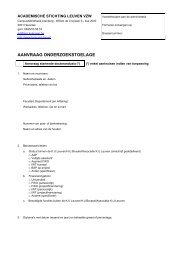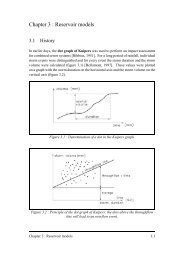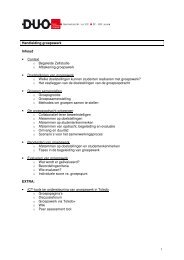EQUALITY GUIdE - KU Leuven
EQUALITY GUIdE - KU Leuven
EQUALITY GUIdE - KU Leuven
Create successful ePaper yourself
Turn your PDF publications into a flip-book with our unique Google optimized e-Paper software.
Chapter 4 ! Scientific communication 213<br />
and feedback and 7) the fact that they had to address a member of the application<br />
commission.<br />
The participants had already worked on their visibility 1) by letting people know what<br />
they were doing and what they wanted to achieve, 2) by making their ambitions<br />
known by applying internally and 3) by being present on preparatory board meetings<br />
of assistants. Other participants had accepted a task or commitment such as writing the<br />
report and taking initiatives in meetings. As a result, they had less difficulty in making<br />
contact and they became more visible for the group. Someone else committed herself<br />
to a working group. Finally, receptions had been used more consciously.<br />
In general, there had been more communication by the female participants: “Participating<br />
more actively during meetings”, “Addressing others”, “Linking website to e-<br />
mail”, “Discussing CV with others”, “Sitting next to someone in a meeting and presenting<br />
oneself” and “asking feedback about what can be improved in the future”.<br />
During the discussion, the lecturer gives additional tips:<br />
! basis = informal contacts;<br />
! being constructive and stressing distinctive features;<br />
! communication training to increase awareness;<br />
! giving compliments, congratulating people, even when they are superiors;<br />
! carefully considering where you want to sit in meetings;<br />
! ‘accidental’ encounters;<br />
! practising outside work, e.g. with friends or partner.<br />
In case of conflicts, remember the following:<br />
! reflect about what the other person wants to hear and what he/she gains by it;<br />
! introduce solutions for the faculty to the dean and explain why you think they are<br />
important for the faculty and which contribution you can make;<br />
! do not blame yourself or someone else when there is a problem, always consider<br />
them as common problems and look for alternatives;<br />
! allow yourself to cool down before initiating a conversation, always think about<br />
what you want to achieve before you start a conversation;<br />
! ask advice when you are uncertain and always keep in mind the interests of the<br />
entire university environment;<br />
! if you are turned down, do not exaggerate with apologies.<br />
During applications, you can do the following:<br />
! talk about your ambitions in a very early stage of the application process in order to<br />
get information you would not get otherwise;<br />
! do not hesitate to apply, even if you know there is a better candidate, something<br />
can always come up;<br />
! never say that your CV is not good;<br />
! remember that of the ten initiatives you undertake, two will fail for sure. If not, you<br />
are not going beyond your comfort zone;<br />
! don’t hesitate to apply for a job;<br />
! when applying, you get feedback which will help you to asses your market value.


